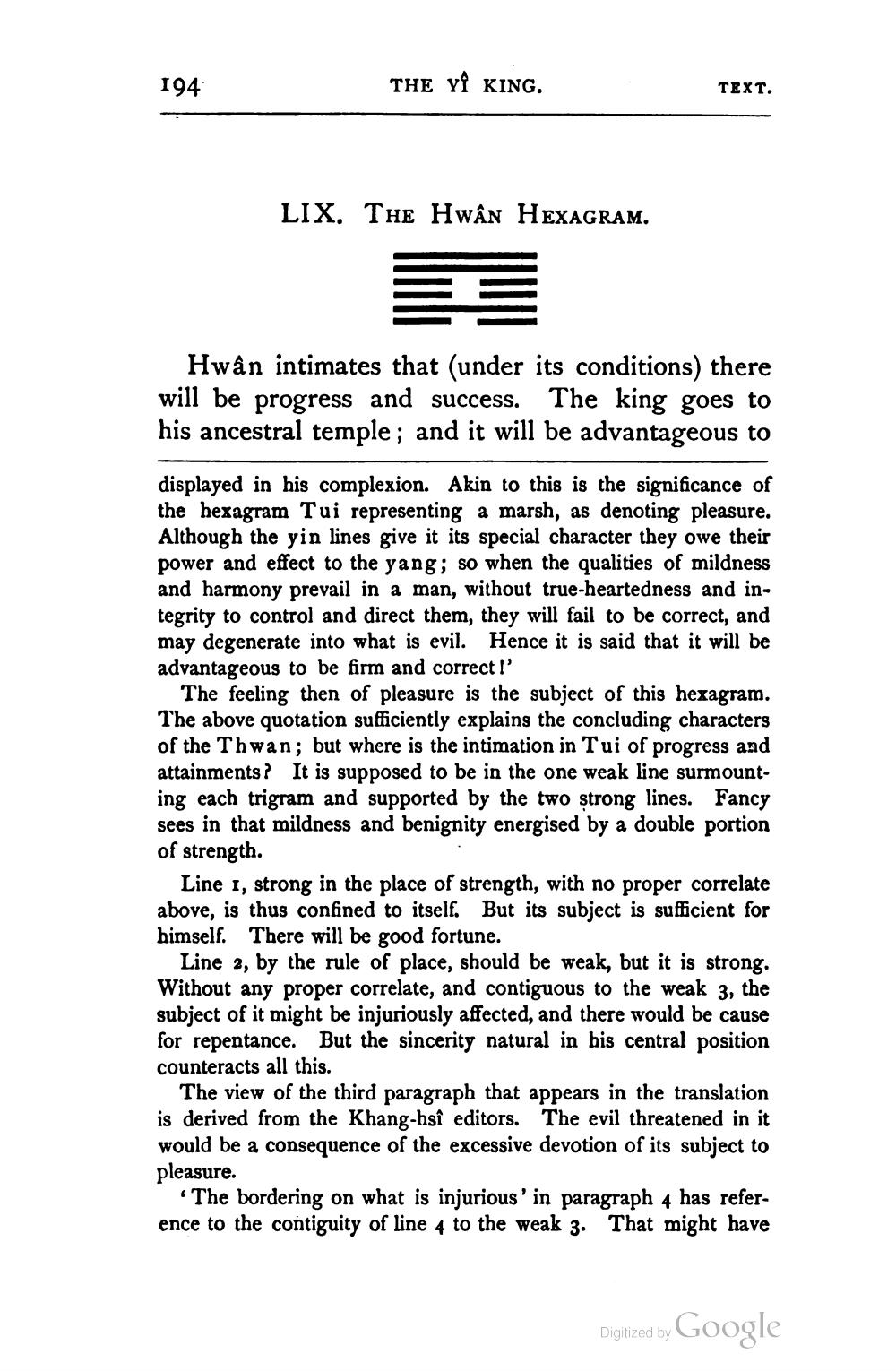________________
194
THE YÎ KING.
TEXT.
LIX. THE HwÂN HEXAGRAM.
Hwân intimates that (under its conditions) there will be progress and success. The king goes to his ancestral temple; and it will be advantageous to
displayed in his complexion. Akin to this is the significance of the hexagram Tui representing a marsh, as denoting pleasure. Although the yin lines give it its special character they owe their power and effect to the yang; so when the qualities of mildness and harmony prevail in a man, without true-heartedness and integrity to control and direct them, they will fail to be correct, and may degenerate into what is evil. Hence it is said that it will be advantageous to be firm and correct !
The feeling then of pleasure is the subject of this hexagram. The above quotation sufficiently explains the concluding characters of the Thwan; but where is the intimation in Tui of progress and attainments? It is supposed to be in the one weak line surmounting each trigram and supported by the two strong lines. Fancy sees in that mildness and benignity energised by a double portion of strength.
Line 1, strong in the place of strength, with no proper correlate above, is thus confined to itself. But its subject is sufficient for himself. There will be good fortune.
Line 2, by the rule of place, should be weak, but it is strong. Without any proper correlate, and contiguous to the weak 3, the subject of it might be injuriously affected, and there would be cause for repentance. But the sincerity natural in his central position counteracts all this.
The view of the third paragraph that appears in the translation is derived from the Khang-hsî editors. The evil threatened in it would be a consequence of the excessive devotion of its subject to pleasure.
The bordering on what is injurious' in paragraph 4 has reference to the contiguity of line 4 to the weak 3. That might have
Digitized by Google




